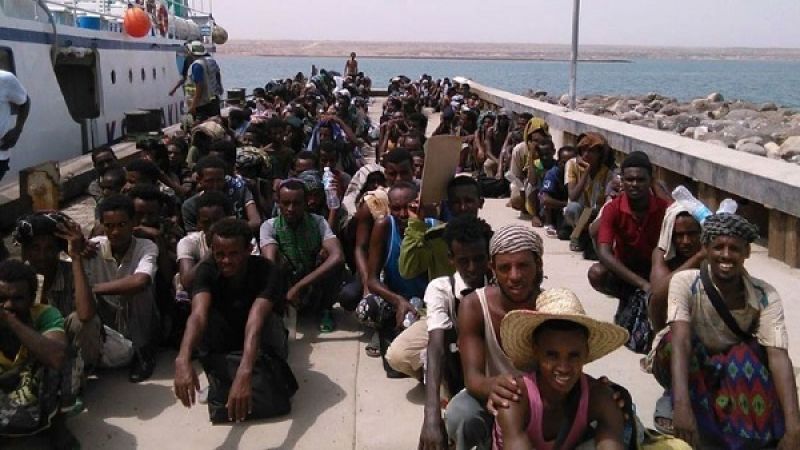
Local Editor
Saudi Arabia has expelled 17,000 Yemeni migrants so far this year, amidst fears that it could deport up to 700,000 back to war and misery in their homeland, deepening the crisis, the U.N. migration agency says.
The oil-rich kingdom has been imposing fines, jail time and deportation on migrants caught without valid identity documents in a push to reduce its abundant black market in labor.
"IOM can categorically say that between January and now 17,000 Yemenis have been turned back, simply because of their immigration status in Saudi Arabia," Mohammed Abdiker, director of operations and emergencies at the International Organization for Migration (IOM), told Reuters.
This applied to irregular migrants being returned to countries including Bangladesh, the Philippines and Ethiopia.
"But our line is you cannot return people to a country like Yemen, particularly when you are bombing it yourself," Abdiker said. "So is there any way the Saudis can waive this for the Yemenis until there is a country to go back to?"
Some 700,000 Yemeni migrants work in Saudi Arabia, he said, speaking in his office on Tuesday on return from Yemen.
A Saudi-led coalition backed by the West has carried out air strikes against the Houthi movement in a war since 2015 to forcefully reinstate the resigned regime.
More than 10,000 people have been killed in a war that has displaced 3 million internally and unleashed the world's worst humanitarian crisis, the U.N. says.
"LIVING AS ANIMALS"
Abdiker voiced deep concern for the fate of African migrants in Yemen, many detained or subject to abuse and extortion by smugglers.
Some 7,000 arrive each month, most from Ethiopia, Somalia and Eritrea who transit Yemen in hopes of reaching Saudi Arabia.
IOM, which helped 2,900 migrants return home last year, has access to three detention centers, including a facility in Sanaa, designed for 100 detainees.
Abdiker asked its 258 inmates about their wishes. "I'd say 90 percent raised up their hand and said we've had enough of this. It's just not acceptable that we can live as animals here, please take us home as quickly as possible."
The facility now holds 470, he said.
Source: News Agencies, Edited by Website Team